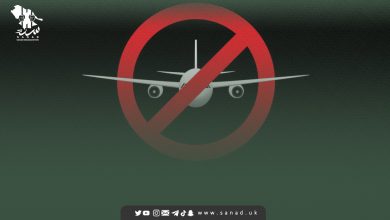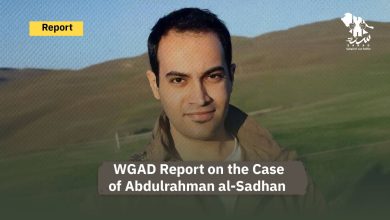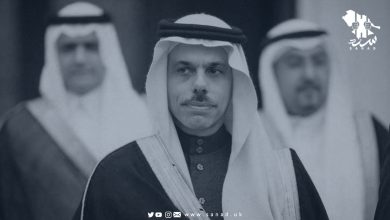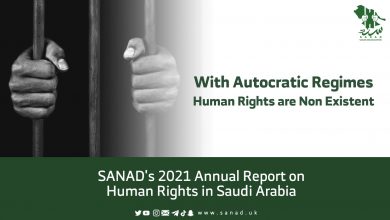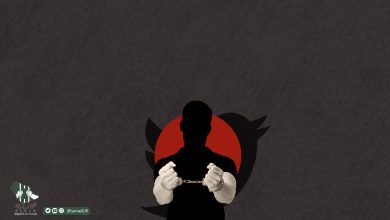
The Saudi authorities refuse to allow the UN Special Rapporteur on the rights of older persons to visit Dr. Safar al-Hawali and Dr. Salman al-Ouda despite her official request.
At the conclusion of her official visit to the Kingdom of Saudi Arabia, the United Nations Special Rapporteur on the rights of older persons, Dr. Claudia Mahler, condemned the Saudi authorities for preventing her from meeting Sheikh Dr. Safar al-Hawali (75 years old) and preacher Dr. Salman al-Ouda (68 years old), both elderly individuals who have been detained for years due to their religious and political views. They face the risk of medical neglect amid concerning detention conditions.
Although she submitted an official request 24 hours before the scheduled time, the authorities of al-Ha’ir Prison in Riyadh refused to allow her to meet them. The Rapporteur described this denial as a “clear violation of the Terms of Reference for UN Special Procedures visits,” which guarantee rapporteurs unrestricted access to detainees and the ability to meet them independently and confidentially.
She pointed out that the authorities denied her direct access to the conditions of two prominent elderly prisoners, who have been and continue to be a significant concern for the UN due to their deteriorating health and deprivation of visits and treatment. She emphasized that this refusal reflects the continued policy of concealing the truth from the international community and the Kingdom’s failure to respect its commitments to international human rights mechanisms.
Mahler added that the Human Rights Commission office within the prison does not undertake any specific work to protect detained older persons and has not provided any information about the presence of detained elderly women or older persons in high-security wings. She noted that the prison does not offer any programs or activities specifically designed for older persons.
In a related context, Dr. Saeed Alghamdi, Chairman of the Board of Trustees of the SANAD Organization, considered the Saudi authorities’ refusal to allow the UN Special Rapporteur on the rights of older persons to visit contradicts the recent statements by the head of the State Security Agency, Abdulaziz al-Huwairini, who urged dissidents to return to the country, promising not to harm them. Alghamdi aid:
“After the State Security official al-Huwairini announced his appeal to the dissidents to return and his pledge not to harm them, the Saudi regime contradicts itself by continuing repressive measures, the latest of which is the authorities’ refusal to allow the UN Special Rapporteur on older persons to visit Sheikh Safar al-Hawali and Sheikh Salman al-Ouda, who, despite their advanced age, suffer from numerous diseases and deliberate medical neglect. This confirms that the government of Ibn Salman continues its repressive approach, disregarding what it has signed regarding UN Special Procedures, which include ensuring the rapporteurs’ right to access detainees and meet them independently and confidentially.”
Alghamdi lso pointed out that the Saudi Human Rights Commission does not play a real role in protecting rights but serves merely as a propaganda tool for the regime, emphasizing that:
“The UN Rapporteur clearly revealed the reality of the Human Rights Commission, which was established by the repressive regime itself to be a political propaganda tool used to beautify its image internationally, without having any actual impact or independence in reality.”
For his part, Abdullah Alghamdi , a member of the Board of Trustees of “Sanad,” affirmed that the repeated deaths in prisons due to medical neglect, the latest being the death of Qasim al-Qathrdi, reveal the extent of the human rights disaster that the authorities are concealing. He pointed out that no fewer than ten detainees have died during Mohammed bin Salman’s era due to neglect and torture. He noted that the continued prevention of independent international oversight and the marginalization of the elderly and sick expose the falsehood of the slogans raised by Vision 2030. He stated in a special statement to SANAD:
“This stance once again reveals the lack of seriousness of Ibn Salman’s regime in any real reform and its disregard for its international commitments, especially those related to human rights mechanisms. Additionally, the marginalization of the elderly and sick and the absence of comprehensive policies to care for them expose the falsehood of the slogans promoted by Vision 2030 and confirm that the Human Rights Commission is merely a superficial facade to beautify the face of the repressive regime. It is noteworthy that no fewer than ten detainees during Ibn Salman’s era have died in Saudi prisons due to medical neglect and psychological torture, and what is hidden is greater, reflecting the magnitude of the humanitarian disaster that the authorities are concealing.”
Systematic Discrimination Against Non-Citizen Elderly
The UN Rapporteur also criticized the systematic exclusion of non-Saudi older persons from health and social services. Despite non-citizens constituting more than 40% of the population—including a significant proportion of older persons—they are not allowed to benefit from free healthcare or pensions and are required to obtain private insurance, exposing them to poverty and exclusion.
She confirmed that the government lacks a comprehensive national policy based on rights for older persons and that Vision 2030 does not include any explicit commitment to equality or comprehensive social protection for older persons, leaving migrants, women, and informal sector workers marginalized.
Widespread Legal and Institutional Shortcomings
Mahler explained that the “Elderly Rights” system, approved in 2022, still lacks effective implementation on the ground and that public awareness of it is low. She also noted that age is not considered a prohibited basis for discrimination in the Saudi constitution, making older persons vulnerable to exclusion in areas such as health, employment, and public services.
She added that social club programs and cultural activities focus on retirees from government elites and high-income individuals, while elderly women, non-Saudi older persons, and low-income seniors are excluded from most of these initiatives.
Final Conclusions and Recommendations
In her concluding observations, the Rapporteur stated that Saudi Arabia suffers from a lack of a rights-based perspective, discrimination against non-citizens, poor conditions for older persons in prisons, and inadequate legal safeguards—all of which constitute clear violations of international standards.
She emphasized that Saudi Arabia’s preparations to host Expo 2030 and the 2034 World Cup must align with its international human rights obligations, particularly ensuring the dignity and protection of older persons on an equal footing. She called for the establishment of a national authority for older persons and the expansion of social protection and healthcare to include everyone without discrimination.
SANAD considers this denial a serious indication of the authorities’ deliberate concealment of violations and cover-up of the inhumane treatment faced by prisoners of conscience, especially older persons, inside prisons.
Both Dr. Alhawali and Dr. Al-Ouda represent prominent examples of the suffering of arbitrarily detained older persons in the Kingdom, as they have been behind bars for years without a fair trial, amid credible reports confirming their exposure to medical neglect, mistreatment, and deprivation of basic rights.
This situation becomes more dangerous in light of the continued deaths inside prisons, as happened with detainee Qasim al-Qathrdi, an older person who died a few days ago under mysterious circumstances inside the prison after being deprived of healthcare, increasing fears of worsening conditions for arbitrarily detained older persons.
Sanad affirms that preventing the UN Rapporteur’s visit is not merely a violation of the right to independent international oversight but also represents a deepening of the policy of obfuscation and a complete lack of transparency at a time when the Saudi authorities seek to present themselves on the international stage as hosts of major events such as Expo 2030 and the 2034 World Cup, in stark contrast to their internal human rights reality.
In the same context, Fahad Alghuwaydi, the official spokesperson for “Sanad,” stated: The Saudi authorities’ refusal to allow the UN Special Rapporteur on older persons to visit some elderly prisoners, whose health and mental conditions are gradually deteriorating amid clear and deliberate neglect and the absence of any independent oversight body monitoring the conditions of prisoners in general and older persons in particular, unequivocally indicates that the vision the Kingdom aspires to and the significant transformation desired by the regime lack the foundational aspect they should be based upon, which is the human rights aspect. Citizens and residents in Saudi Arabia can clearly observe this through public facilities, basic services, and infrastructure, which have neglected to consider the most socially vulnerable groups, including older persons and individuals with special needs.
Alghuwaydi added: With the abundance of human rights reports, testimonies, and evidence that have reached the level of video recordings reflecting the inhumane environment and the absence of the most basic human rights for detainees inside the regime’s prisons and detention centers, the situation becomes catastrophic for a detainee over sixty or seventy years old or one who suffers from physical disabilities or mental and psychological issues.
Regarding the role of human rights organizations, Alghuwaydi said: Therefore, it is the imperative duty of human rights associations in general and the United Nations Human Rights Council in particular to fulfill their human rights obligations dictated by their consciences before their professional responsibilities by continuing to pressure the Saudi regime to consider the human and rights aspects of this category of detainees.
Alghuwaydi also held the Saudi authorities fully responsible for the conditions of the detainees, stating: We at SANAD hold the regime and the Saudi authorities fully responsible for the deterioration of the health conditions of the detainees, which has led to the death of a significant number of cases.


